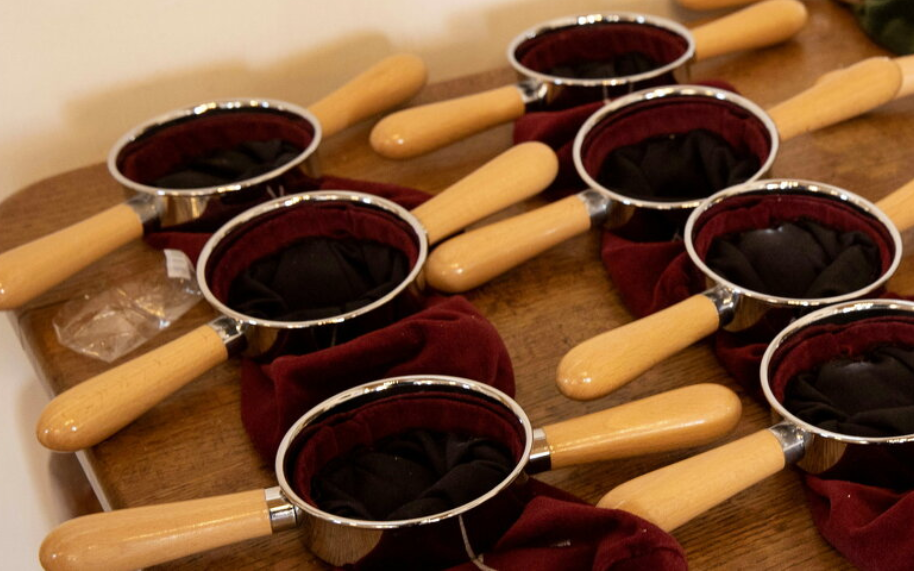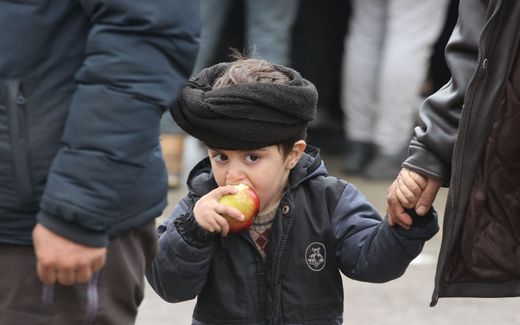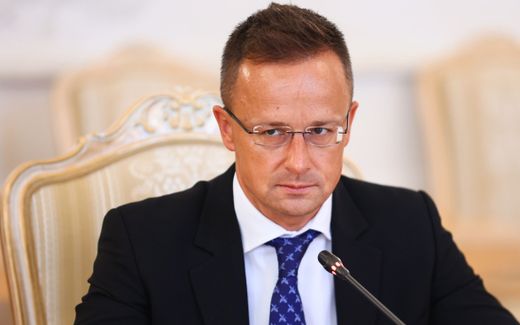Diaconate needs care, especially in times of rising prices
17-12-2022
Western Europe
Laura Hendriksen-Bassa, RD

Photo Anton Dommerholt
Western Europe
As the cost of living continues to rise, the diaconate of churches also gets busier. Quietly, deacons do their work. What dilemmas do they encounter?
A church member knocks on the deacons' door. The church council does not know his situation well. The man is not in church that often. The amount he requests, is donated. Sometime later, however, it becomes clear that the man is a gambling addict. It is too late. The man has disappeared.
The incident took place in the congregation of Laurens van Dongen. He is a deacon in a reformed congregation in the middle of the Netherlands. The event made him extra cautious. "We started listening with a critical ear: Who is asking for money, and what will happen with that money? We are not going to just give money. You can give someone with a sad story 1,000 euros, but that is not always wise. After all, it is community money you have in your hands. You are, therefore, also allowed to ask critical questions."
Van Dongen has little experience with church members asking the diaconate for help. He has been a deacon for two years in a congregation with some 700 members, about 150 of whom attend church on Sundays. Most of the money raised for the diaconate in his congregation goes to charity organisations outside the church.
Threshold
He can imagine that people experience a threshold to take the step to the diaconate. "We placed an appeal in our church magazine because of rising energy costs. This appeal may lower the threshold to come to us."
A middle-aged couple from the congregation responded to the appeal. "They indicated they were tight on money. The husband needed a new pair of trousers, but there was not enough money. For us as a deacons, their financial need did not come as a surprise. We inventorisedwhat they needed. I went to a clothing shop nearby and agreed on an amount for which the couple could shop. At a later date, the couple bought clothes, the bill for which was sent to the diaconate. That went very well."
For Van Dongen, partly due to past experiences, it was a conscious decision not to give the amount of money to the couple themselves. "In the past, there were rumours that this man had an alcohol problem. It is necessary to make clear agreements so that you can be sure that the money is used for the right purposes."
The deacon does not actively visit church members to find out about their financial situation. "Our pastor comes to people's homes. He has occasionally indicated to the diaconate who is tight on money. To be honest, nothing has been done with that yet. What should you do? Should you go there? Is that necessary?"
The deacon experiences a barrier to approaching members of the congregation. "For the diaconate, it would be very nice if members just report it when they are in trouble. You can't smell that."
Careful
The deaconry discusses church members who ask for help in Van Dongen's congregation. "We don't have a concrete policy. However, it is important to know a few things about a person. That a congregation member steps up to you is a signal to take the request seriously. If you give a lot of money, you must ask for insight into the finances. However, for a few hundred euros, we will not go through someone's accounts."
The deacon deals "discreetly" with church members he knows are supported. "In the church council, names are handled very carefully. The elders do not know without question who is supported by the diaconate. It is good and necessary to be careful with this information."
Heart for church members
Deacons need to have a heart for the church members they assist. So says Jan van de Kamp, a policy officer at the General Diaconal Commission (GDC) of the Restored Reformed Church (Hersteld Hervormde Kerk, HHK) in the Netherlands, a denomination with 60,000 members.
Am I seeing the person, or am I just seeing the problem? That is a question deacons should always be alert to, according to Van de Kamp. At the same time, according to the policy adviser, the diaconate also has a business side. "You have to sit with people and ask about their income and expected expenses. By mapping that out together, you can help people further."
It is not always visible which church member needs financial support. "We think it is important for deacons to pick up signals. That requires sensitivity. You get into people's private zone, after all. It is wise to keep a finger on the pulse of people who have been helped by the diaconate in the past by asking how things are going from time to time. If there are high medical expenses among church members, financial distress may arise. Or with people who experience an unexpected death and have to pay for a funeral as a result."
This article was translated and edited by CNE.news and previously published in Dutch daily Reformatorisch Dagblad on December 16th, 2022.
Related Articles





